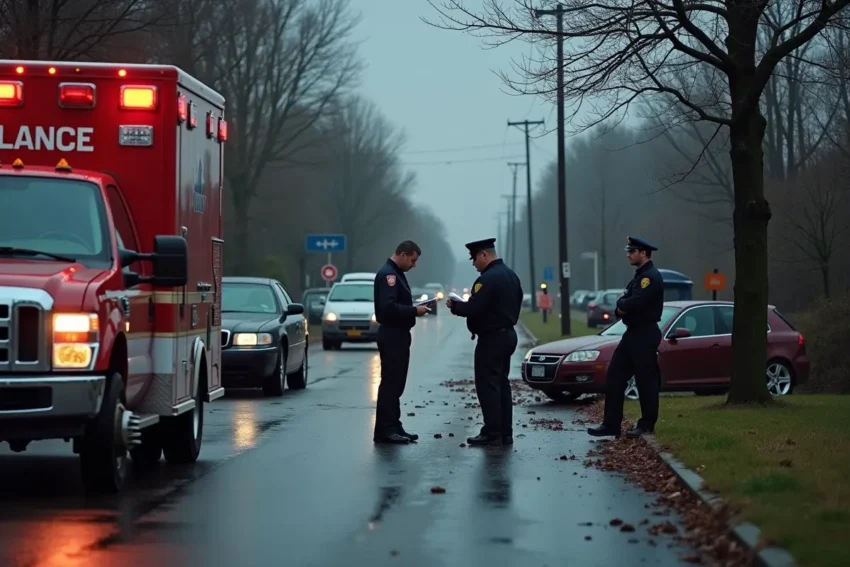When involved in an accident, obtaining immediate medical attention is the top priority. Many people assume that calling an ambulance means their insurance will cover the bill. Unfortunately, experts at The Devkota Law Firm attest that it is not always the case.
A surprising number of ambulance services operate outside insurance networks, leaving accident victims with unexpected and sometimes overwhelming charges. Understanding how out-of-network ambulance billing works can help you prepare for this hidden cost and know the steps to take if it occurs.
Why Ambulance Services Often Fall Out of Network
Unlike hospitals and most doctors, many ambulance providers do not participate in insurance networks. Private ambulance companies, in particular, may choose to stay out of network because they can set their own rates and bill patients directly for the balance not covered by insurance. Even municipal or fire department ambulances are not always contracted with insurers. This lack of regulation and standard pricing creates a gray area where patients may have little control over what they are charged.
Adding to the problem, people rarely have the chance to “shop around” for an ambulance in an emergency. You cannot ask the dispatcher which service is in-network when you are injured and need immediate care. As a result, you might be transported by an out-of-network provider without realizing it until you receive the bill later.
The Cost Impact of Out-of-Network Ambulances
Ambulance rides are expensive, even when insurance is involved. Basic ground transportation can cost anywhere from several hundred to several thousand dollars, depending on the distance and level of care provided. When the ambulance is out of network, insurers may pay only a portion of what they consider a “reasonable” charge. The ambulance company can then bill you for the remainder, a practice known as balance billing.
For example, if an ambulance charges $3,000 for a trip and your insurer decides a reasonable rate is $1,200, the insurer might pay only a portion of that amount. You could be left owing the rest of the bill, often hundreds or thousands of dollars. Air ambulance services are even more expensive, with bills sometimes reaching tens of thousands of dollars.
Recent Legal Protections and Their Limits
The federal No Surprises Act, which took effect in 2022, was designed to protect patients from unexpected out-of-network bills in emergencies. However, ground ambulances were notably excluded from the law’s protections. This means most patients transported by an out-of-network ground ambulance can still be balance billed.
Some states have enacted their own surprise billing laws, but coverage and protections vary widely. In many places, accident victims remain vulnerable to large out-of-pocket ambulance charges even when the trip was medically necessary and unavoidable.
Steps to Take if You Get an Out-of-Network Ambulance Bill
If you receive a large bill from an ambulance provider, you are not powerless. Start by reviewing your insurance explanation of benefits (EOB) to see what was covered. Then, contact your insurer to ask whether the payment can be reconsidered or if the provider is willing to negotiate. Some ambulance companies may reduce the bill if you can show financial hardship or if your insurer is willing to pay a little more.
Filing an appeal with your insurance company can also be worthwhile, especially if the ambulance ride was a true emergency. Check whether your state has any consumer protections or mediation programs for surprise medical bills. Keeping records of the accident, your injuries, and why the ambulance was necessary can strengthen your case.
Protecting Yourself After an Accident
While you cannot always control which ambulance responds, knowing your rights can help you manage unexpected bills. Ask your insurer in advance about their emergency transport coverage.
After an accident, keep detailed records and contact your insurance company as soon as possible to clarify how the claim will be processed and billed. If you encounter a large balance bill, consider seeking help from a legal professional experienced in insurance disputes and accident claims, such as the experts at The Devkota Law Firm.
Conclusion
Accidents are stressful enough without the shock of a massive ambulance bill. Out-of-network ambulance services remain a hidden financial risk, especially since many providers choose not to contract with insurance networks.
Understanding how billing works, your options for appeal, and your state’s protections can significantly impact what you ultimately owe. If you are struggling with an unexpected ambulance charge after an accident, talk to a lawyer to better understand your rights and potential options for relief.

